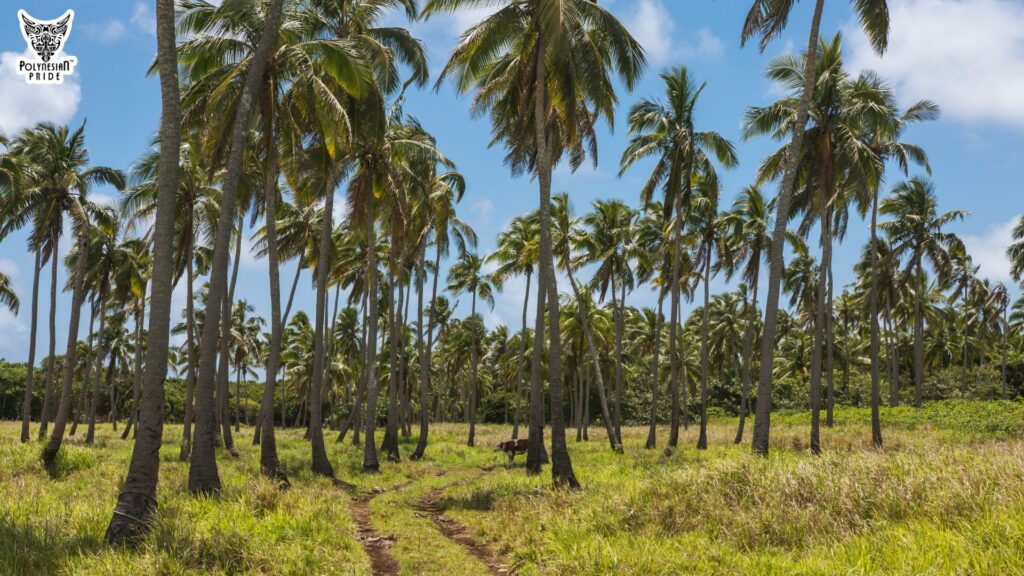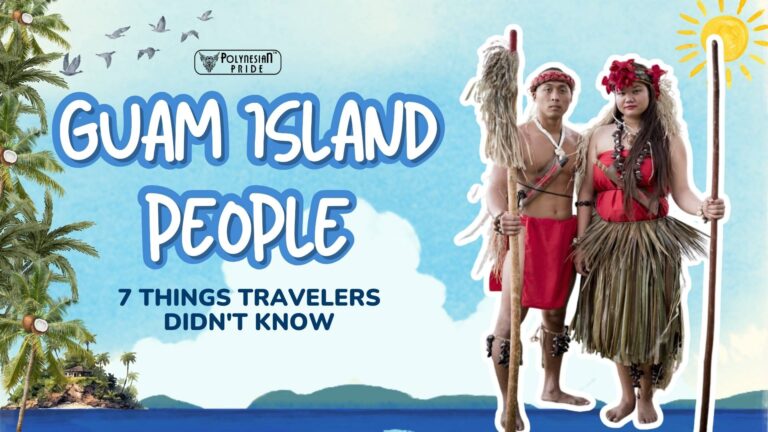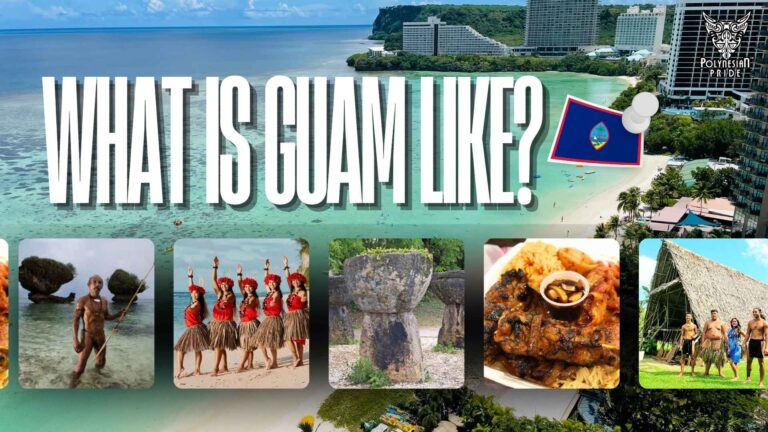20 Facts About Tonga: Discovering the Heart of Polynesia

Introduction
Tonga is a captivating archipelago in the South Pacific, rich with cultural heritage, natural beauty, and fascinating history. Known as the “Friendly Islands“, Tonga comprises 169 islands, of which only 36 are inhabited, offering a unique glimpse into Polynesian life.
This article will explore 20 intriguing facts about Tonga, providing a comprehensive overview of what makes this place so special and what captivates both locals and visitors alike.
20 Facts About Tonga
1. Tonga’s Vanishing Island
One of the most unique facts about Tonga is the story of Fonuafo’ou, meaning “New Island” in Tongan. This submarine volcano has periodically emerged and vanished throughout history. Between 1781 and 1865, reports indicated the presence of a large shoal in the Ha’apai Group of islands. In 1867, the British vessel HMS Falcon officially verified that it was a coral reef. By 1885, the island had grown to 50 meters (164 feet) high and 2 kilometers (1.2 miles) long, prompting Tonga to declare the new island as Fonuafo’ou.

However, the island disappeared in 1894, only to resurface two years later at 320 meters (1,050 feet) before vanishing again. It reappeared in 1927, then disappeared by 1949, continuing this cycle. Currently, Fonuafo’ou is in its “hidden” phase.
2. Facts About Tonga: Humpback Whales Migrate 3,000 Miles to Mate and Calve

Many visitors flock to Tonga primarily to swim with humpback whales. These majestic creatures embark on an incredible 4,830-kilometer (3,000-mile) journey from their feeding grounds in the Antarctic to the warm waters of Tonga annually, arriving between July and October. If you’re planning to catch this once-in-a-lifetime experience, make sure you’re dressed right – check out our guide on what to wear in Tonga for the perfect island essentials.
3. Tonga Was Home to the World’s Most Weighty Monarch

Many captivating facts about Tonga revolve around its monarchy, and foremost among them is this: King Taufa’ahau Tupou IV held the title of the world’s heaviest monarch! He remains in the Guinness World Records as the heaviest monarch, weighing 208.7 kilograms (460 pounds). Remarkably, he shed approximately 40% of his weight, becoming a health inspiration for Tonga.
4. Facts About Tonga’s Independence: The Sole Pacific Nation to Evade Colonization

The source of great pride for the Tongan people is that Tonga is the sole Pacific nation that has avoided colonization. Interestingly, Tongans themselves engaged in a form of colonization during the 10th century. Rather than ceding authority to the British, who arrived in Tonga with missionaries, the Tu’i Tonga (King of Tonga) established Tonga’s constitutional monarchy. This transition was facilitated by a particularly supportive British reverend, who subsequently became Tonga’s first prime minister.
5. Tonga was home to the Longest-Lived Radiated Tortoise on Record

Renowned as Tui Malila, a 200-year-old tortoise, claimed the title of the oldest radiated tortoise on record and served as a cherished companion to Tonga’s royal family. Legend has it that this tortoise, originating from Madagascar, was presented to King George Tupou I by Captain James Cook in July 1777. Tui Malila remained in the care of the royal household until its passing on May 16, 1966.
6. Tonga was home to the Sole Three-Headed Coconut Tree in the South Pacific!

While coconut trees are a common sight across the South Pacific, only in Tonga will you find the unique spectacle of a coconut tree bearing three heads. Local farmers in Liahona on Tongatapu have taken great care to preserve this remarkable natural wonder, which has become a popular tourist attraction along the roadside.
7. In Tonga, there exists a Tradition of a Third Gender

One of the fascinating facts about Tonga is its cultural phenomenon, “fakaleiti”, representing a distinctive gender identity. Assigned male at birth, individuals embracing this identity assume feminine roles within society. Fakaleiti individuals hold a distinct and revered position within Tongan culture.
8. Tonga is Free of Poisonous Snakes and Spiders

One of the reassuring facts about Tonga is that it lacks menacing land animals that pose serious harm, including poisonous land snakes and spiders. However, there are still natural inhabitants to be cautious of, such as mosquitoes, pesky centipedes, coral, and the occasional jellyfish and stonefish, which should be carefully approached. Despite these considerations, Tonga remains a generally safe destination.
9. The Tonga Alphabet Comprises Only 17 Letters

One of the interesting facts about Tonga is its alphabet, which consists of only 17 letters: a, e, i, f, g, h, k, l, m, n, ng, o, p, s, t, u, and v. The last letter is represented by a glottal stop (fakaʻua).
10. Tonga Earns the Title “Cradle of Polynesia”
Tongan culture is fascinating, from its unique traditional clothing to its flavorful cuisine. This deep cultural richness has earned Tonga the title of “Cradle of Polynesia”.
The earliest evidence of settlement in Tonga originates from the village of Nukuleka on Tongatapu, where an abrader has been uranium-thorium dated to 888 BC, predating any other known settlement in contemporary Polynesia. Scholars suggest that Nukuleka was pivotal as the birthplace of a distinct culture and social organization developed by Melanesian settlers, which eventually evolved into Polynesian culture. This significance has earned Nukuleka the moniker “Cradle of Polynesia”.
11. Facts About Tonga’s Economy: Agriculture Thrives Among Tongans

Most Tongans are engaged in farming, focusing primarily on cultivating crops such as squash, yams, and root vegetables. One of the crucial facts about Tonga is that agriculture plays a significant role in Tonga’s economy, contributing approximately 29% to its GDP and accounting for 50% of its exports.
12. Tonga Features a Tropical Rainforest Climate
One of the climatic facts about Tonga is that it experiences warm weather from December to April, with temperatures often exceeding 32 degrees Celsius. Conversely, the climate tends to be more relaxed from May to November, with average temperatures around 27 degrees Celsius.
13. Facts About Tonga’s Natural Wonders: Magnificent Blowholes

In geological terms, a blowhole is formed when sea caves extend inland, creating vertical shafts through which water forcefully erupts. Tonga is renowned for its remarkable blowholes, some extending up to 5 kilometers. Locals call them Mapu a Vaea or “Whistle of the Noble.”
14. If a Tongan woman only has sons, she must raise more daughters to help with chores.
In Tongan culture, if a woman has only sons, she must raise one as a daughter to assist with chores. One of the culturally unique facts about Tonga is this practice, known as fakaleiti, which is widely accepted in the region with no stigma attached. Some individuals willingly adopt the fakaleiti lifestyle today.
15. The majority of Tonga’s islands are uninhabited.
Tonga consists of approximately 170 islands, with the majority remaining uninhabited. Only around 45 islands are actively engaged in human activities, while the others are avoided due to unsuitability for farming and susceptibility to natural disasters.
16. The Niuas are nearer to Samoa than to any other island within Tonga

Tonga comprises roughly 170 islands, organized into five administrative divisions. Among these is The Niuas, a cluster of three islands situated approximately 300 kilometers (186 miles) north of the nearest Tongan island group, Vava’u. Interestingly, the Niuas are closer to Samoa than Vava’u, a geographical proximity evident in the local dialect of Niuafo’ou, which exhibits influences from Samoa alongside its Tongan roots.
17. Engaging in business activities, playing sports, or performing chores on Sundays is prohibited by law in Tonga.
One of the legal facts about Tonga is that in its initial constitution, the church wielded significant influence over the country’s laws. One enduring Christian law enforced today is the prohibition of conducting business on Sundays, recognized as the Sabbath. However, certain companies, such as tourist resorts, are exempt from this regulation to accommodate modern needs.
Consequently, Sundays in Tonga are typically characterized by widespread closure of establishments to prioritize family, church attendance, relaxation, and communal meals. Additionally, engaging in sports, exercise, or certain chores on Sundays is prohibited, underscoring the reverence for this day of rest. So, better hold off on that laundry!
18. Facts About Tonga’s Airports: A Road Through the Runway
At Ha’apai Solote Pilolevu Airport, the main road of Ha’apai runs directly through it. However, the situation is managed smoothly: gates are closed along the road whenever a plane is scheduled to land or take off, ensuring safety and orderliness.
19. Tonga is among the first countries to greet the new day.

One of the time-related facts about Tonga is that it is one of the foremost countries to embrace the new day because it is just west of the International Date Line. Consequently, Tonga is also among the first to ring in the New Year, joining Samoa, Tokelau, and Kiribati, which all share the same time zone.
20. The Hunga Tonga-Hunga Ha’apai Volcanic Eruption was the largest since Krakatoa in 1883.

The recent volcanic eruption in Tonga, the Hunga Tonga-Hunga Ha’apai eruption, commenced in December 2021 and persisted for approximately two weeks, reaching its zenith on January 15, 2022. This event marked the most substantial eruption since Krakatoa in 1883. Ash soared up to 61 kilometers (38 miles) into the atmosphere, with roughly 146 teragrams of water vapor (equivalent to about 60,000 Olympic-size swimming pools) injected into the Earth’s stratosphere.
Conclusion
In conclusion, the facts about Tonga offer a captivating glimpse into the rich tapestry of this Polynesian kingdom. From its unique status as the only remaining monarchy in the Pacific to its stunning natural beauty and vibrant cultural heritage, Tonga stands as a testament to its people’s resilience, tradition, and enduring spirit. With its storied past and promising future, Tonga remains an enchanting destination that leaves a lasting impression on everyone who can experience its wonders firsthand.
Frequently Asked Questions (FAQs)
What is Tonga best known for?
Tonga is famous for being a beautiful island in the South Pacific and a popular tourist destination. It is also renowned for having never been colonized and able to retain its Indigenous ways of life.
What is a unique feature of Tonga?
The Last Polynesian Monarchy
Tonga holds a unique title as the last remaining Polynesian monarchy. Unlike its island neighbors, Tonga was never fully colonized, allowing for the preservation of its monarchy. This has made it the only Polynesian kingdom to retain its indigenous governance into modern times.
What is the most popular food in Tonga?
The Tongan diet mainly consists of pork, chicken, lamb, and fresh fish, combined with things like fresh coconut milk, taro leaves, yams, kumala, cassava, and more. Most restaurants in Tonga serve more international cuisine, but you can try a few culture Tongan foods like ota ika and lu pulu on some restaurant menus.
What is Tonga’s national dish?

What is Ota Ika? Tonga’s national dish is a fish lover’s delight.

I am Leilani Miller – I research focusing on Vanuatu – volcanic landscapes, blue holes, coral reefs & rainforests. I have over five years of experience researching and sharing insights on tourism and environmental activism. Explore and experience without limits through my latest article.
Contact information:
Email: [email protected]
Tel: +1 (808) 555-1528






